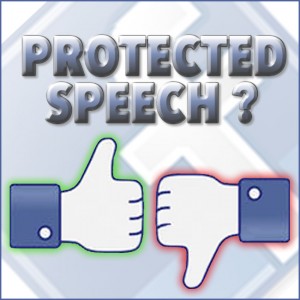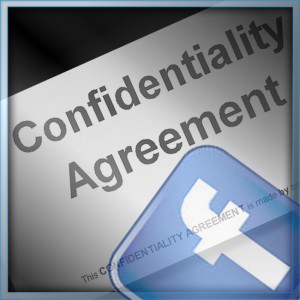It was recently reported in the news that a gentleman in Miami, Florida who received an $80,000 settlement from his former employer in resolution of an age discrimination claim has now lost those monies after his daughter bragged about the settlement on Facebook. Apparently, the settlement agreement included a confidentiality clause which was breached by the father telling his daughter about the settlement and by her then posting about it on Facebook, which publicized the information to her many “friends” who were affiliated with her father’s former employer. At the end of the day, although we recognize that a confidentiality clause often has limited teeth as the chances of recovering the money are slim even if the clause is breached, this situation provides some optimism for the benefits and effectiveness of confidentiality clauses. However, one thing to keep in mind is that the breach occurred just days after the settlement agreement was signed.
Archive | Employees and Social Media
“Liking” a Facebook Page and the First Amendment
 Is “Liking” a Facebook page protected speech under the First Amendment in the public employment context?
Is “Liking” a Facebook page protected speech under the First Amendment in the public employment context?
Recently, the Fourth Circuit Court of Appeals in Bland v. Roberts, 12-1671 (4th Cir., September 18, 2013), overturned a District Court decision which held that public employees’ Facebook “Likes” were not protected speech under the First Amendment. In this case, six city employees were terminated from their employment for supporting an opposing candidate in an election. One method used by these employees to show their support for the candidate was by “liking” his Facebook page. The District Court held that this was not protected by the First Amendment and dismissed the Plaintiffs’ claims. In reversing the District Court, the Fourth Circuit noted that other courts have granted First Amendment protection to posts written on Facebook. Here, this was simply a click of the mouse indicating that the user liked a page or a post. Nevertheless, the Fourth Circuit held that there is no constitutional significance between a single mouse click and the typing of a post. The court also went on to describe the action as an internet equivalent of displaying a political sign in your front yard. On this basis, the Fourth Circuit held that a Facebook “like” did constitute speech protected by the First Amendment.
We note, however, that this decision only applies to those states within the Fourth Circuit. On this basis, this holding is not controlling in Pennsylvania. However, it is quite possible that other circuits may adopt the reasoning of the Fourth Circuit. Accordingly, we caution public employers to be careful when taking an adverse employment action based on their employees’ social media activities including, but not limited to, “liking” a Facebook post or page.


